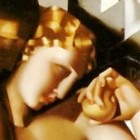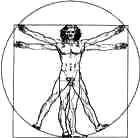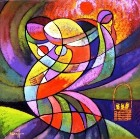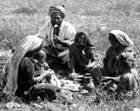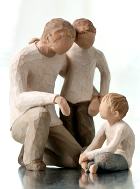Cain & Abel in the Bible
Cain was the first farmer. His brother Abel was an animal herder. They both offered sacrifice to God.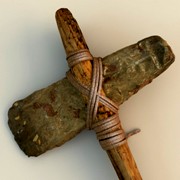
God was pleased with Abel’s offering of a lamb, but not with Cain’s offering from his harvest. Cain was jealous. In a fit of rage he killed his brother.
The earth itself turned against him: he could no longer grow crops, and became a wanderer without a home.
What’s the story’s hidden meaning?
In the Bible, farming was associated with Mesopotamia and Egypt, both enemies.
- Cain was an agriculturalist, a farmer. He lived a settled life in one place – not on a farm as farmers do today, but in a village near his fields.
- Abel was an animal herder, a nomadic shepherd. He travelled from place to place all year round, looking for fodder for his animals.
Who was Cain?
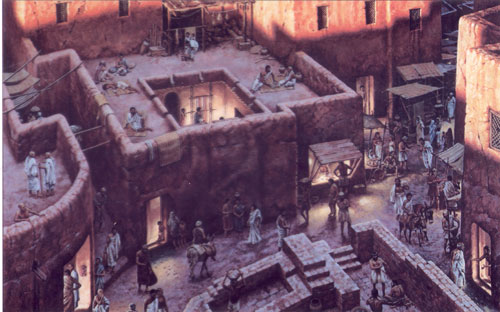
Reconstruction of an ancient village
Cain was a village-dwelling farmer. He lived at close quarters with other people – see the reconstructed village houses and street in the picture at right.
His daily tasks were regulated by life in a village. There were neighbours, buildings, the need to control sanitation and water supply.
He had a varied and fairly regular diet, but to get food he had to put in long days of work and a year-round cycle of chores. He, his wife and his children all worked in the fields at certain times of the year.
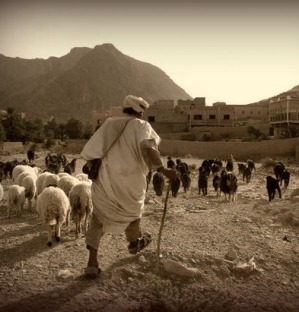 Who was Abel?
Who was Abel?
Abel was a nomadic herder. He was self-sufficient, not confined by anything except the needs of his animals and day-to-day necessities. When one campsite became polluted and smelly, he simply moved to a new one.
Abel’s tent was made (by the women of his family) from wool fibres from his flocks.
His food was simple, but usually on permanent tap: milk, occasional meat, and whatever he could scrounge from the surrounding countryside.
There was plenty of time in his day for telling stories and thinking about the meaning of life.
A deeper meaning of the story
It would be a mistake to think this story is about one event, long ago, when two brothers quarrelled and came to blows. It is much more than that.
It asks us to think about the universal struggle between different ways of life.
Think about the source. Who originally told this story? The Patriarchs and Matriarchs, who were nomadic herdsmen. Naturally they told the story from their own point of view.
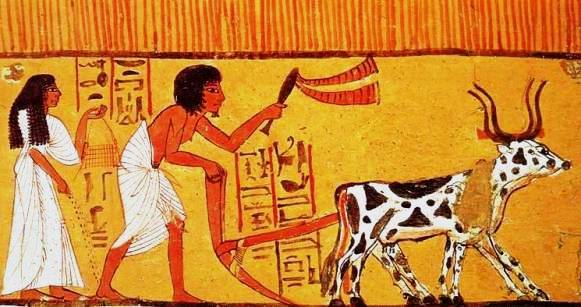
Egyptian wall painting with farmers ploughing and sowing seed
They saw the farmers (Cain) as violent – which they often were. There was constant tension between settled city or town dwellers, and the wandering herdsmen.
Cain, as presented in their story, is
- selfish (‘Am I my brother’s keeper?’)
- stingy (Cain’s offering is not his best produce)
- inclined to evil (sin crouches at his door)
- a polluter of the soil (the earth opens its mouth to Abel’s blood and will no longer give its bounty to Cain)
What’s the story really about?
Keep in mind that the creation stories in Genesis 1-3 grew out of a society quite different to our own. There were two separate ways of life, co-existing with each other:
- nomadic life, where people travelled with their cattle, moving from pasture to pasture as the seasons changed and periods of drought and plenty occurred
- settled agriculture – where farms and crops provided a relatively stable existence, and villages and towns gradually appeared.
Nomadic life was hard and precarious but relatively free and easy.
Agriculture was more secure but meant back-breaking labour.
For a farmer there were problems such as
- individual land ownership and dispute over boundaries and land use
- hygiene and sanitation; when people live in one place throughout the year, large amounts of waste matter had to be disposed of
- the stress of living with neighbours.
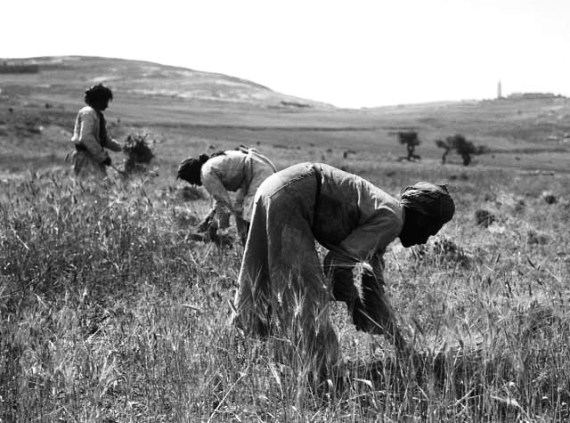
At the time the story of Cain and Abel first appeared, settled villages were gradually replacing the nomadic life, because they could support a larger population.
Competing ways of life
The struggle between these two ways of life is mirrored in the stories in the first part of the Book of Genesis:
- the Garden of Eden
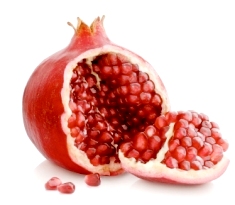
- Eve’s choice of the apple (women, not men, are thought to have discovered farming; women were gatherers of roots, fruits and seeds, men were hunters),
- the fight between Cain and Abel.
Cain represented settled agriculture and village life, Abel stood for the nomadic way of life, which later settled societies saw through rose-coloured glasses. We do the same thing when we look back nostalgically at a world of farms rather than factories.
A struggle for dominance
In the early biblical world, both ways of life were locked in a struggle for dominance, and though the nomadic way of life lingered on in some places, it had been almost entirely replaced by agriculture when these stories were being told.
The Bible remembers the struggle between the nomadic life and settled agriculture through a story where the different characters represent different ways of life.
It is history remembered through a story.
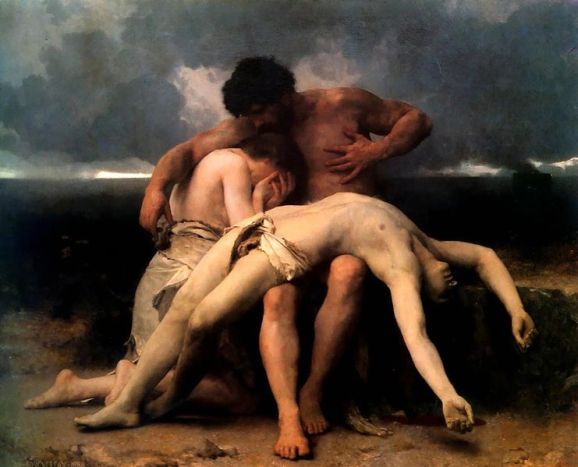
The First Mourning, Bouguereau, 1888
People in the story of Cain & Abel
- Cain means ‘getting’ or ‘producing’
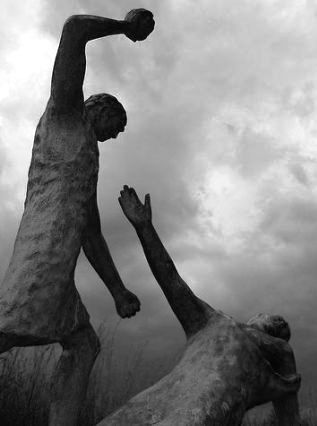
- Abel means ’emptiness’ or ‘futility’
- God: in this story, God is a manifestation of Order and Harmony.
The murder of Abel disrupts and offends universal harmony. There is a price to pay.
The story has 3 episodes:
- Cain and Abel are sons of Adam, Genesis 4:1-2
- Cain and Abel offer sacrifices to God, Genesis 4:3-7
- Cain murders Abel and God punishes him, Genesis 4:8-16
What is the story of Cain & Abel about?
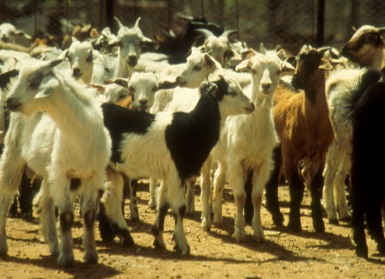 Cain and Abel are the sons of Adam and Eve.
Cain and Abel are the sons of Adam and Eve.
- Their father and mother committed the first sin.
- The two young men sin against each other, and this is the second sin.
Mankind sins first against God, and then against each other.
At the heart of the story is a new idea: that lawlessness is contrary to the will of God, and when it happens, the good as well as the wicked suffer.
Note: The Bible often presents brothers who are different in personality, ways of life, or destiny. Cain and Abel are the first of these pairs. Others are Joseph and his brothers, Esau and Jacob, Aaron and Moses, Solomon and Adonijah, and the two brothers in the story of the Prodigal Son, to mention just a few. There is a recurring motif of the younger son being favoured over the older one.
Summary of Cain & Abel’s story
Adam’s sons, Cain and Able, each present an offering to God, but one son, representing one way of life, is preferred. The violence between these two men mirrors tension between the nomadic and agricultural ways of life.
God prefers the nomadic shepherd Abel (because the story-teller is a nomadic shepherd) – but the farmer, Cain, wins out by surviving.
Bible text for the story of Cain & Abel
Genesis 4:1-16
1 Adam lay with his wife Eve, and she became pregnant and gave birth to Cain. She said, “With the help of the Lord I have brought forth a man.”
 2 Later she gave birth to his brother Abel. Now Abel kept flocks, and Cain worked the soil.
2 Later she gave birth to his brother Abel. Now Abel kept flocks, and Cain worked the soil.
3 In the course of time Cain brought some of the fruits of the soil as an offering to the Lord.
4 But Abel brought fat portions from some of the firstborn of his flock. The Lord looked with favor on Abel and his offering,
5 but on Cain and his offering he did not look with favor. So Cain was very angry, and his face was downcast.
6 Then the Lord said to Cain, “Why are you angry? Why is your face downcast?
7 If you do what is right, will you not be accepted? But if you do not do what is right, sin is crouching at your door; it desires to have you, but you must master it.”
8 Now Cain said to his brother Abel, “Let’s go out to the field.” And while they were in the field, Cain attacked his brother Abel and killed him.
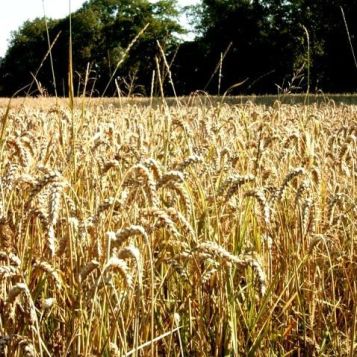 9 Then the Lord said to Cain, “Where is your brother Abel?” “I don’t know,” he replied. “Am I my brother’s keeper?”
9 Then the Lord said to Cain, “Where is your brother Abel?” “I don’t know,” he replied. “Am I my brother’s keeper?”
10 The Lord said, “What have you done? Listen! Your brother’s blood cries out to me from the ground.
11 Now you are under a curse and driven from the ground, which opened its mouth to receive your brother’s blood from your hand.
12 When you work the ground, it will no longer yield its crops for you. You will be a restless wanderer on the earth.”
13 Cain said to the Lord, “My punishment is more than I can bear.
14 Today you are driving me from the land, and I will be hidden from your presence; I will be a restless wanderer on the earth, and whoever finds me will kill me.”
15 But the Lord said to him, “Not so; if anyone kills Cain, he will suffer vengeance seven times over.” Then the Lord put a mark on Cain so that no one who found him would kill him.
16 So Cain went out from the Lord’s presence and lived in the land of Nod, east of Eden.
Return to top
© Copyright 2006
Elizabeth Fletcher

